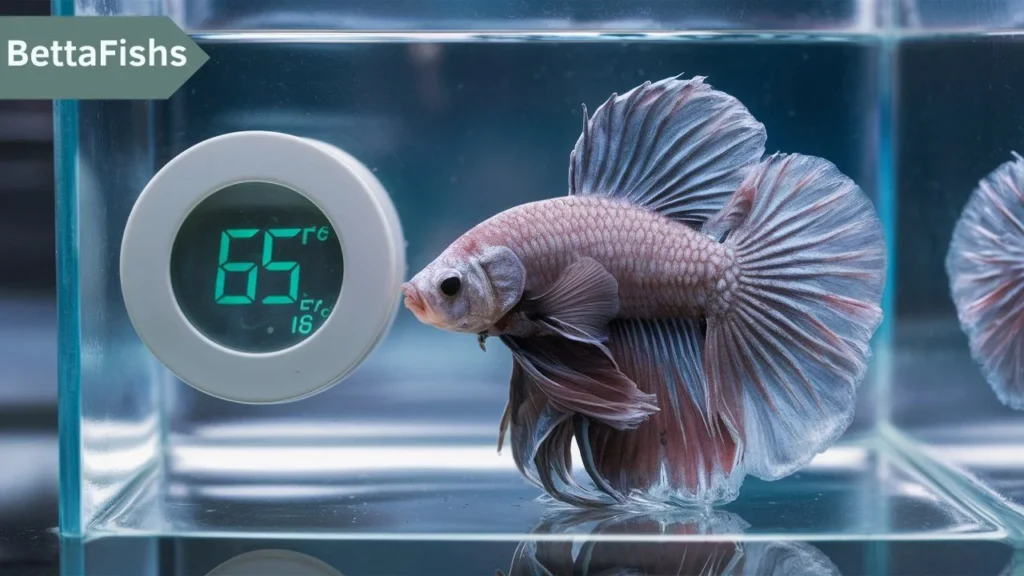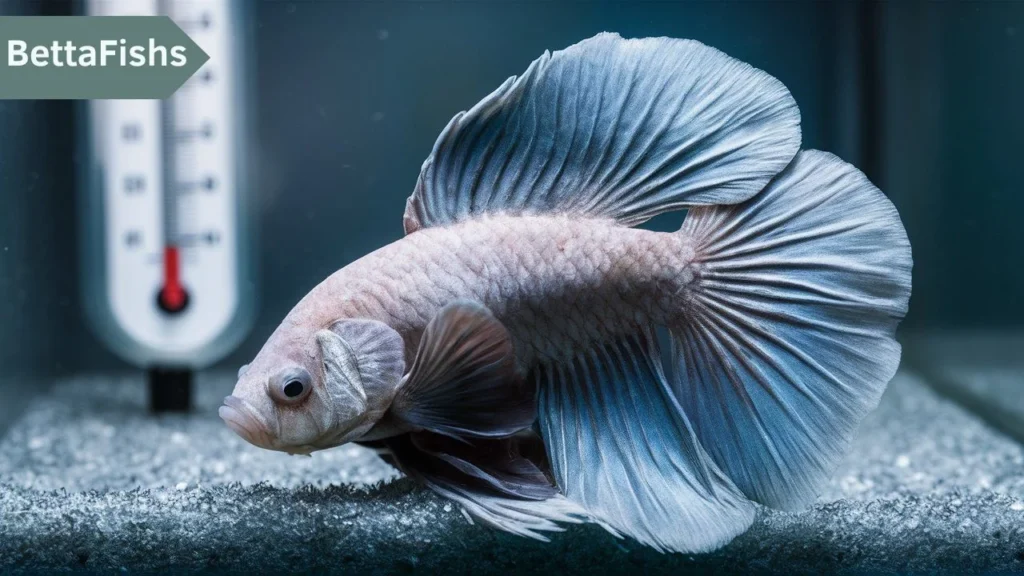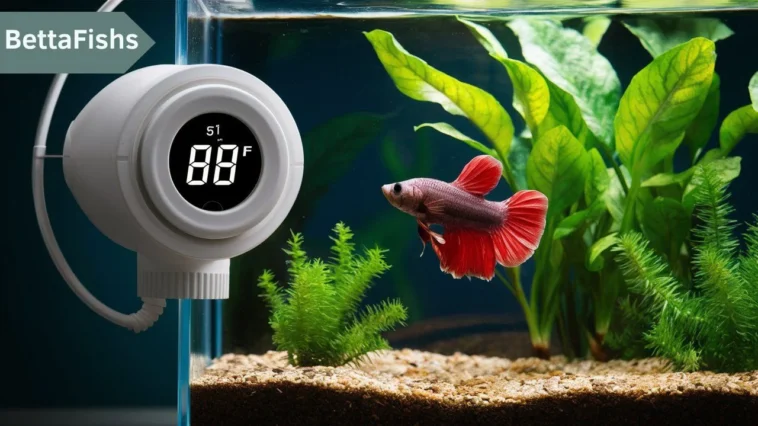Siamese fighting fish also referred to as betta fish, are well-liked pets because of their flowing fins and vivid colors While they are relatively easy to care for, one crucial aspect of their well-being is the water temperature in their tank. Many new Betta owners may wonder how long these beautiful fish can survive in cold water and what the consequences might be. This article delves into the importance of “How long can Betta fish survive in cold water?” and maintaining the right water temperature for Betta fish and what happens when they are exposed to colder environments.
Betta Fish and Their Natural Habitat
The mild seas of Southeast Asia, particularly those in Thailand, Cambodia, and Vietnam, are home to betta fish. In their natural habitat, they thrive in shallow, slow-moving bodies of water, such as rice paddies, ponds, and streams. The water in these regions is typically warm, with temperatures ranging between 75°F and 80°F (24°C to 27°C). This warm environment is crucial for the Betta fish’s health and overall well-being.
Ideal Water Temperature for Betta Fish
For Betta fish to live a healthy and active life, it’s essential to maintain a water temperature between 75°F and 80°F (24°C to 27°C). This temperature range closely mimics their natural habitat, allowing them to thrive. When the water temperature is kept within this range, Betta fish exhibit vibrant colors, active swimming behaviors, and strong immune systems.
What Takes Place When Cold Water Is Exposed to Betta Fish?
When Betta fish are exposed to cold water, several physiological changes occur. Their metabolism slows down significantly, which can lead to reduced activity and lethargy. In colder temperatures, Betta fish may become more susceptible to illnesses such as fin rot, ich, and other bacterial infections. Prolonged exposure to cold water can also lead to stress, weakened immune systems, and, in severe cases, death.
How much time can betta fish withstand the cold?
Betta fish can survive in cold water for a short period, but their health will quickly deteriorate. While they might manage to survive for a few days in water temperatures as low as 65°F (18°C), it’s not sustainable. The longer they are exposed to cold water, the greater the risk of severe health issues and even death. Ideally, Betta fish should not be kept in water below 72°F (22°C) for extended periods.

Signs That Your Betta Fish is Too Cold
If your Betta fish is too cold, you’ll notice several signs indicating they’re under stress. Common symptoms include:
- Lethargy: The fish will move less and might spend more time resting at the bottom of the tank.
- Loss of Color: Betta fish may lose their vibrant color and appear pale.
- Clamped Fins: The fins may be tightly closed against the body instead of flowing freely.
- Reduced Appetite: A cold Betta may stop eating or show little interest in food.
Recognizing these signs early can help prevent long-term damage to your Betta fish.
How to Keep Betta Fish Warm in a Cold Environment
To ensure your Betta fish stays warm, it’s essential to use a reliable heater in their tank. Here are some tips:
- Use a Heater: Invest in a good quality heater with a thermostat to maintain a consistent temperature.
- Monitor Temperature: Using an aquarium thermometer, check the water’s temperature on a regular basis.
- Insulate the Tank: Place the tank in a warmer part of your home, away from drafts or cold windows.
- Use a Lid: A lid on the tank can help retain heat and prevent temperature fluctuations.
What to Do If Your Betta Fish Has Been Exposed to Cold Water
If you discover that your Betta fish has been exposed to cold water, take immediate action:
- Warm Up Slowly: Gradually increase the water temperature using a heater. Sudden changes can shock the fish.
- Monitor Closely: Keep a close eye on your Betta for any signs of illness or distress.
- Provide a Calm Environment: Reduce stress by keeping the tank environment stable and quiet.
Preventing Cold Water Exposure in the Future
To prevent future exposure to cold water:
- Choose the Right Tank Location: Place the tank in a warm, stable environment.
- Regular Temperature Checks: Make it a habit to check the water temperature daily.
- Proper Tank Maintenance: Clean the tank regularly to avoid bacteria buildup that can thrive in colder water.
The Role of Tank Size and Equipment in Maintaining Temperature
The size of the tank plays a crucial role in maintaining a stable temperature. Larger tanks retain heat better than smaller ones, which can fluctuate more easily. Investing in a reliable heater, thermometer, and even a backup power source can ensure your Betta fish remains comfortable year-round.
Common Myths About Betta Fish and Cold Water
There are several myths surrounding Betta fish and their ability to survive in cold water:
- “Tanks without heating can support Betta fish.” Although they can live there for brief periods of time, it is not good for their long-term health.
- “Room temperature is fine for Betta fish.” Room temperature can fluctuate, leading to stressful conditions for Betta fish.

Comparing Betta Fish to Other Tropical Fish in Cold Water
Compared to other tropical fish, Betta fish are particularly sensitive to cold water. Unlike some hardier species, Betta fish have less tolerance for temperature fluctuations, making them more vulnerable to the effects of cold water.
Seasonal Changes and Their Impact on Betta Fish
Seasonal changes can cause significant fluctuations in water temperature. During colder months, it’s crucial to be more vigilant about maintaining the correct temperature in your Betta fish tank. Adjusting care routines and ensuring the heater is working properly can prevent any negative impact from seasonal changes.
FAQs
1. How long can Betta fish go without a heater?
Betta fish can survive without a heater for a short period, but it’s not recommended. Without a heater, the water temperature can drop quickly, leading to health issues.
2. Can Betta fish survive in room temperature water?
While Betta fish can survive in room temperature water, it’s not ideal. Room temperatures can fluctuate, causing stress and potential health problems for the fish.
3. What’s the minimum temperature for Betta fish survival?
The minimum temperature for Betta fish survival is around 72°F (22°C). Anything below this can lead to severe health issues.
4. How can I tell if my Betta fish is cold?
Signs that your Betta fish is cold include lethargy, loss of color, clamped fins, and reduced appetite.





Danke für den interessanten Beitrag, sehr informativ!
Výborně zpracovaný post, moc se mi líbil.
Super article, facile à suivre et plein d’astuces.